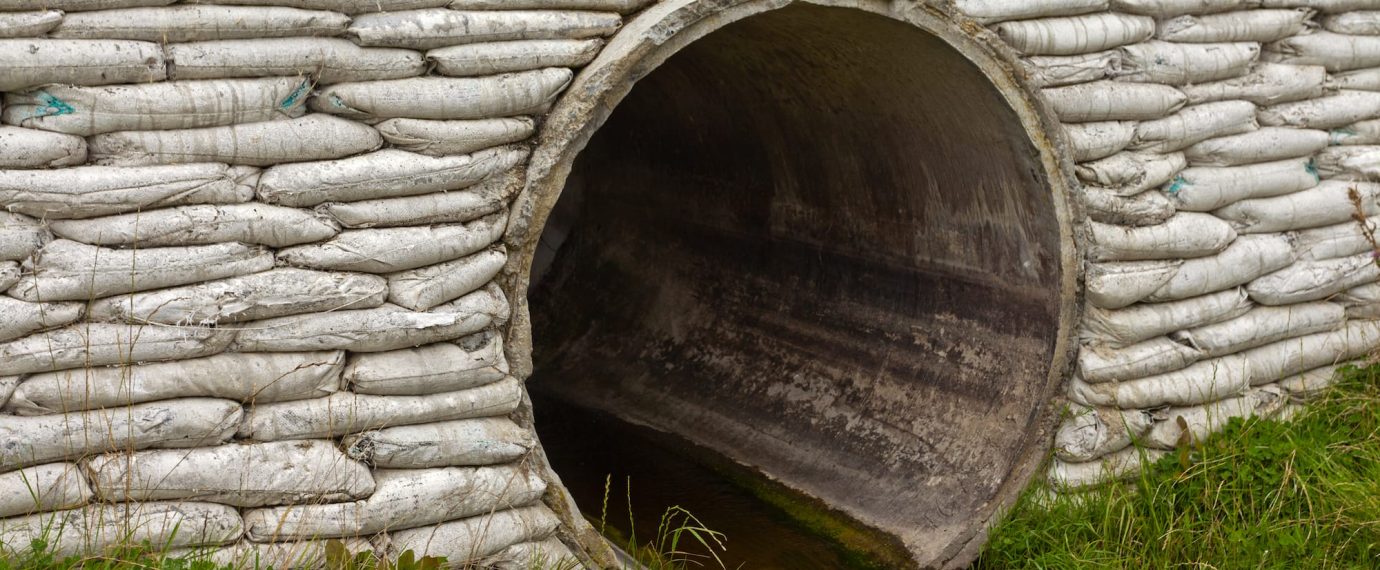By Seth Jacobson, Sr. Manager – Environmental, U.S. Compliance
When it comes to protecting the environment and ensuring regulatory compliance, the Illinois Environmental Protection Agency (IL EPA) plays a crucial role. As part of their efforts, the IL EPA issues storm water permits to industrial sites. These permits, authorized under the Clean Water Act, are essential for maintaining water quality and preventing pollution. In this comprehensive guide, we will explore the significance of EPA storm water permits in Illinois and take a look at the new permit put into place on July 1, 2023.
Understanding the Clean Water Act and National Pollutant Discharge Elimination System (NPDES)
The Clean Water Act, enforced by the EPA, establishes the National Pollutant Discharge Elimination System (NPDES) permitting program. Under this program, the IL EPA mandates permit authorization for storm water discharges associated with industrial activity. This includes sites that disturb one or more acres of land or less than one acre but are part of a larger development plan.
The NPDES storm water permits are designed to prevent the discharge of pollutants into water bodies and maintain water quality standards. By obtaining these permits, industrial sites commit to implementing best management practices (BMPs) to minimize the impact of storm water runoff on the environment.
The Role of the IL EPA in Permit Authorization
In Illinois, the IL EPA is responsible for authorizing storm water permits. The agency reviews permit applications, ensures compliance with regulations, and monitors the implementation of BMPs. Through its oversight, the IL EPA plays a vital role in preventing pollution and protecting water resources throughout the state.
The New Industrial Storm Water Permit (ILR00)
Recently, the IL EPA issued a new Industrial Storm Water Permit known as ILR00. This new permit replaces the existing one and applies to a wide range of industrial sectors, which includes most manufacturing facilities. This permit sets forth the requirements and guidelines for industries engaged in activities that may contribute to water pollution. It aims to improve storm water management practices and ensure compliance with water quality standards.
Most importantly, the permit contains new requirements, and existing facilities with permit coverage need to resubmit their updated Strom Water Pollution Prevention Plans (SWPPP) along with a renewal application for continued coverage. The IL EPA requires all of this to be completed before the designated deadlines.
Below is a summary of the deadlines and new requirements included in the permit.
Upcoming Compliance Deadlines for 2023-2024
November 28, 2023:
- Update SWPPP to meet new permit requirements.
- Submit updated SWPPP to IL EPA.
- Submit renewal application for continued coverage.
January 1, 2024:
- Initiate quarterly storm water sampling & testing (Indicator & Benchmark).
- Submit quarterly testing results with the next Annual Report.
New Permit Requirements
- Indicator Monitoring: Sampling and pollutant monitoring that is applicable to certain sectors/subsectors as specified in the permit.
- Submittal of Analytical Results: On an annual basis, all analytical results from indicator monitoring & benchmark monitoring from each sampling event need to be submitted with the annual report.
- Sector-Specific Requirements: Facility-specific requirements that are sector or industry-specific (based on SIC codes) may have changed in the permit.
- Annual Training: All affected employees must receive documented training that covers the permit requirements.
Benefits of EPA Storm Water Permits
Obtaining an EPA storm water permit offers several benefits for both industries and the environment. Some of the key advantages include:
1. Environmental Protection
EPA storm water permits are designed to protect the environment by preventing the discharge of pollutants into water bodies. By implementing BMPs and adhering to permit requirements, industrial sites actively contribute to maintaining water quality and preserving ecosystems.
2. Compliance with Regulations
Compliance with environmental regulations is crucial for industrial sites to avoid legal issues and penalties. By obtaining an EPA storm water permit, businesses demonstrate their commitment to operating in accordance with the Clean Water Act and NPDES program requirements.
3. Improved Storm Water Management
Storm water runoff from industrial sites can carry pollutants into nearby water bodies. By implementing storm water management practices outlined in the permits, such as sediment and erosion control measures, industries can effectively reduce the impact of their activities on water quality.
Understanding the Permitting Process
Obtaining an EPA storm water permit involves a comprehensive process laid out in the following steps.
1. Application Submission
Industrial sites seeking a storm water permit must submit an application to the IL EPA. The application includes information about the facility, the nature of activities, and a description of storm water management practices.
2. Review and Evaluation
The IL EPA reviews the permit applications, ensuring they meet the requirements and comply with regulations. The agency evaluates the proposed storm water management practices and may request additional information or modifications if needed.
3. Permit Issuance
Once the application is deemed complete and in compliance with regulations, the IL EPA will issue the storm water permit. This document outlines the specific requirements and conditions that the permittee must adhere to in order to maintain compliance.
4. Implementation and Monitoring
Upon receiving the permit, industries and construction sites are responsible for implementing the required storm water management practices. The IL EPA monitors the implementation and conducts periodic inspections to ensure ongoing compliance.
Compliance and Enforcement
Compliance with EPA storm water permits is crucial to maintaining water quality and protecting the environment. The IL EPA carries out regular inspections to verify compliance and takes appropriate enforcement actions if violations are identified. Penalties for non-compliance can include fines, corrective actions, and further regulatory oversight.
Resources and Support
U.S. Compliance provides resources and support to industrial sites seeking to obtain and maintain storm water permits. These include:
● Assisting your facility in the application process
● Developing a new SWPPP for your facility
● Coordinating stormwater sampling
Conclusion
EPA storm water permits are an essential component of environmental protection in Illinois. By obtaining and adhering to these permits, industrial sites play a critical role in preventing water pollution and maintaining water quality standards. For continued permit coverage, U.S. Compliance can assist your facility with the application process and the development of a new SWPPP. Contact U.S. Compliance today to prioritize your compliance and implement best management practices to protect the environment for future generations.



